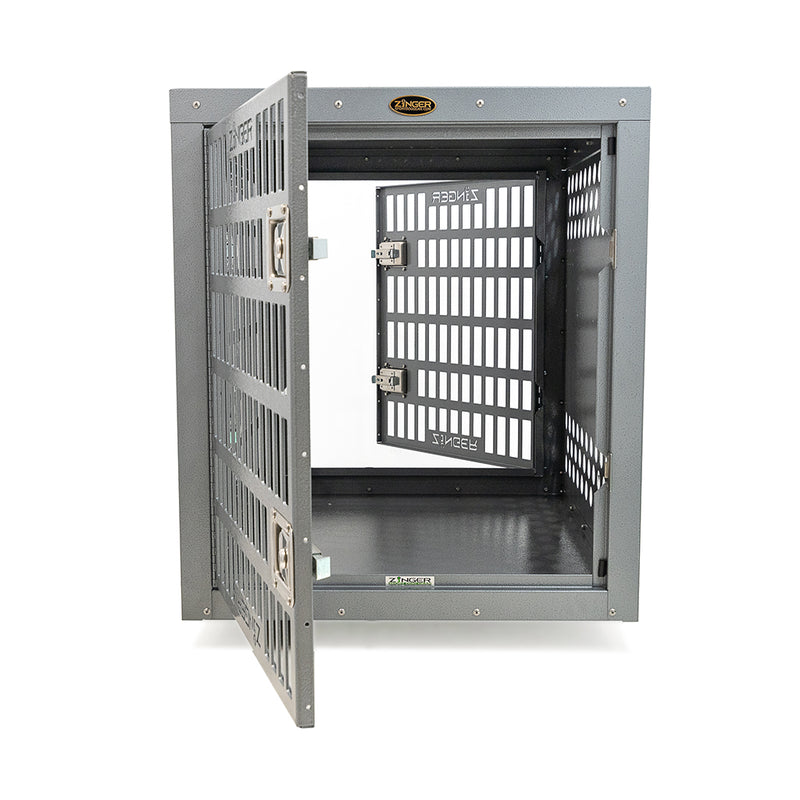Your Cart is Empty
Electronic Collars
Collars and Leads
Dog Tracking Systems
Dog Training
Bird Launchers
Hunting Dog Supplies
For The Hunter
What is Leptospirosis and Should Your Dog Be Vaccinated?
April 07, 2022 4 min read 2 Comments

Leptospirosis, which is commonly referred to as “lepto,” is a disease caused by Leptospira bacteria and can affect animals as well as humans. Lepto is a zoonotic disease, meaning that it can be transmitted from canines to humans. For many decades, cases of leptospirosis were less common, but in recent years, cases have been quickly increasing and are becoming listed on the WHO and CDC watch list of diseases that have an epidemic potential. Even with the risks of the disease, leptospirosis vaccination is not a required immunization for canines, though we highly recommend it for any dog that goes outdoors, even if only for a bathroom break. In this article, we will cover risk factors, how the bacteria is transmitted, signs of an infection, treatment, and canine vaccination options.
How is it transmitted?
Leptospirosis is most commonly transmitted through urine. As stated in the introduction, the bacteria are zoonotic; thus, it can jump from animal to animal, including jumping to humans. In wildlife, Leptospirosis is often carried by rats, raccoons, opossums, skinks, squirrels, and deer. Streams, lakes, and puddles have the most likelihood of having leptospirosis bacteria in them because the bacteria are transmitted through urine. It is important to mention that the Lepto bacteria are capable of living in soil for up to several weeks, under the right conditions. Many articles will label leptospirosis as a higher risk for canines in rural areas due to livestock and exposure to other animals, though let it be known that cases in urban areas have been outgrowing rural areas in recent years. Many experts think this is due to a higher concentration of dogs with limited green space to do their business, so several dogs are exposed to the same area several times throughout the day. In these instances, one infected animal can quickly infect a large group of canines. The Leptospirosis bacteria can also be passed through the placenta from mother dogs to their puppies. For this reason, it is important to have puppies vaccinated when they become of age.
Who is at risk?
Any canine that goes outside is at risk to coming in contact with the bacteria. Canines that are exposed to other animals and wildlife are at a higher risk. Puppies, like with most other bacterial infections, are at the higher risk due to their limited immune system. Dogs that have open cuts that are swimming or exposed to infected urine, urine-contaminated soil, or contaminated bodies of water are also at risk.
Signs of Leptospirosis
Signs of leptospirosis can be difficult to identify because they closely mimic other illnesses. Some infected dogs also will show no signs of the infection, while other dogs may develop severe illness and in some cases death. In severe cases, the disease causes kidney and/or liver failure, as well as severe lung infections.
Symptoms include:
- Fever
- Shivering
- Changes in urination frequency
- Vomiting
- Abdominal pain
- Diarrhea
- Refusal to eat
- Severe weakness and depression
- Stiffness
- Severe muscle pain
- Infertility
Younger dogs are generally more seriously affected than older dogs.
Dogs believed to be infected with lepto are likely to have blood tests, urine tests, x-rays, and an ultrasound during their examination to determine if they are infected with the bacteria, which strain it is, and how severe the infection is.
Treatment for Leptospirosis
Like a majority of bacterial infections, leptospirosis is generally treated with antibiotics and supportive care. With early and aggressive treatment, the chances for recovery are good, but depending on the severity of the infection, some permanent kidney or liver damage may be a result of the infection.
If your dog is infected with leptospirosis, there are several steps that you can take to prevent the bacteria from being transmitted from your dog to members of your household.
- Treat the dog with veterinarian-prescribed antibiotics.
- Avoid contact with your dog’s urine.
- If possible, have the dog urinate away from your home, areas that other animals may visit, and water ways.
- Quickly cleanup and disinfect any areas inside of your home that your dog urinates in. It is important to wear gloves when doing so to avoid skin contact with the urine.
- Thoroughly wash your hands after handling your dog.
- If you are immunocompromised, consult your doctor for advice.
Vaccination Options
Before we get into vaccine options, we want to note that leptospirosis vaccines are not 100% guaranteed and current vaccines only protect against certain variations of the bacteria. If your vaccinated dog does become sick, those vaccinated usually have decreased risk of the illness becoming severe.
Current vaccinations for leptospirosis effectively prevent infections for at least 12 months. Annual vaccination for leptospirosis is highly recommended, especially for dogs that are at a higher risk of exposure.
Lion Country Supply carries several canine vaccinations that include Leptospirosis protection, these include:
Conclusion
Like most canine transmitted infections, yearly vaccinations and precaution are key to preventing your dogs from getting exposed and infected. With leptospirosis being a zoonotic transmitted disease, carried by several different wildlife and spread through urine, it is important to have your dog vaccinated to keep them protected. If you think that your dog is infected with Lepto bacteria, contact your veterinarian to schedule tests and treatment. With Lepto able to be transmitted from canine to humans, if your dog is infected, it is important to take the precautions listed earlier in our article.
If you have any questions on our vaccine options or have requests for other articles, please leave us a comment in the comment section below.
Thank you for reading!
Written by: Michael Cassatt, LCS Director of Marketing
2 Responses
Andrew
April 11, 2022
I heard of Doge who have had it, a vitamin regiment helps,anyone know what that looks like?
Leave a comment
Comments will be approved before showing up.
Subscribe
Sign up to get the latest on sales, new releases and more …
Featured Products

Subscribe
Sign up to get the latest on sales, new releases and more …




Michael - Lion Country Supply
April 11, 2022
@Andrew, It looks like they prescribe vitamins D and C to lessen the symptoms of the disease. But we highly recommend self treating if infected with leptospirosis, as it can become deadly if not properly treated.